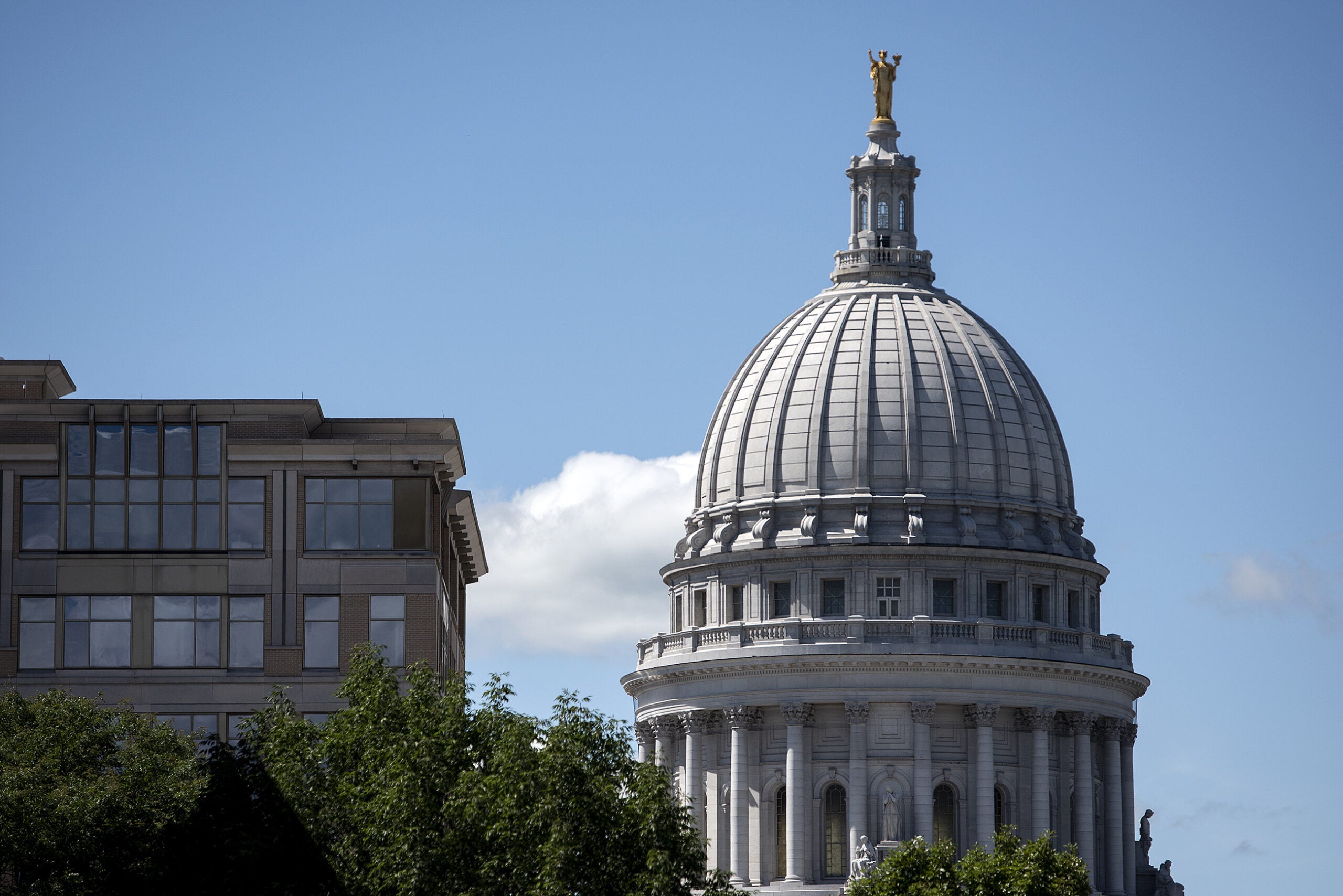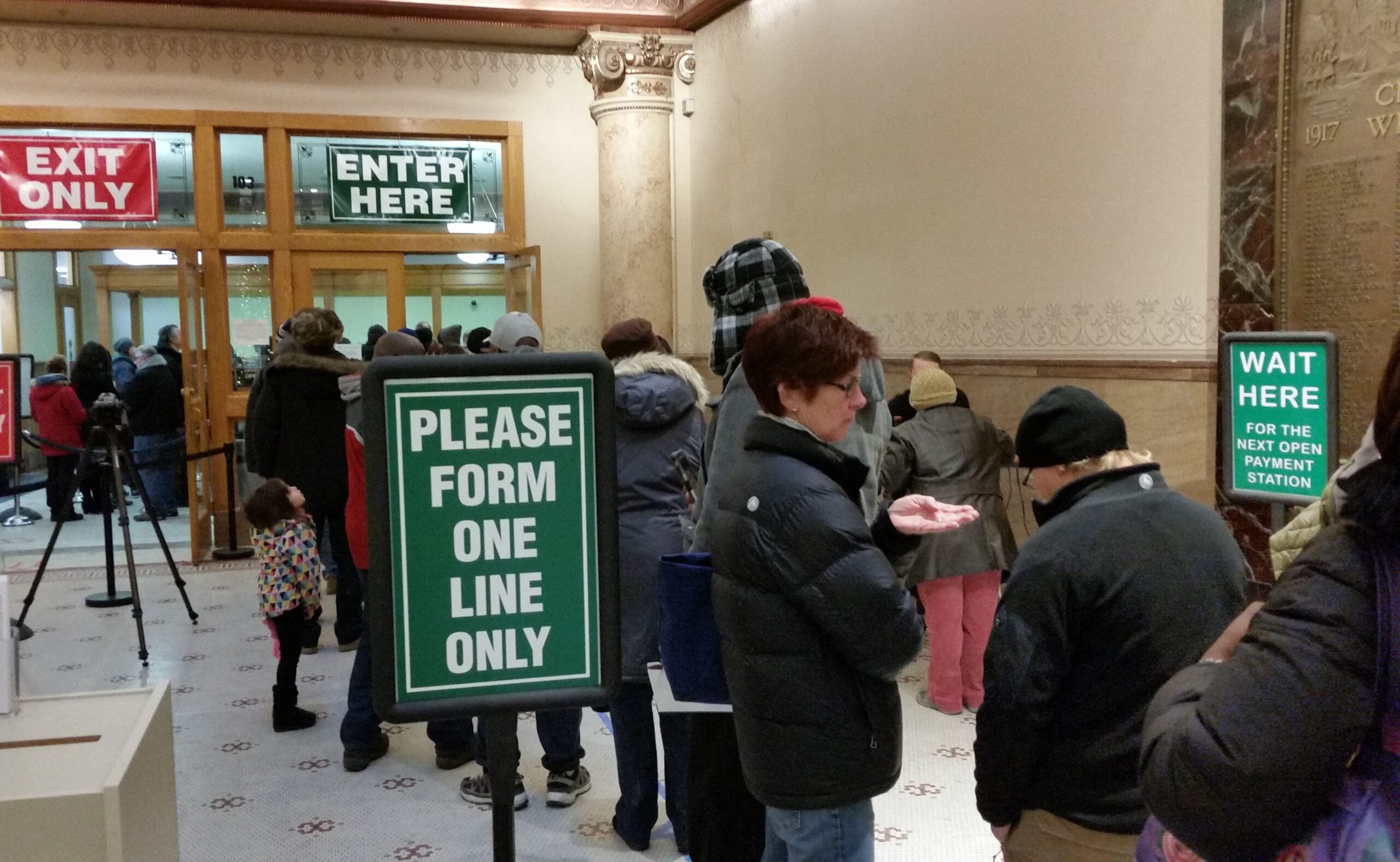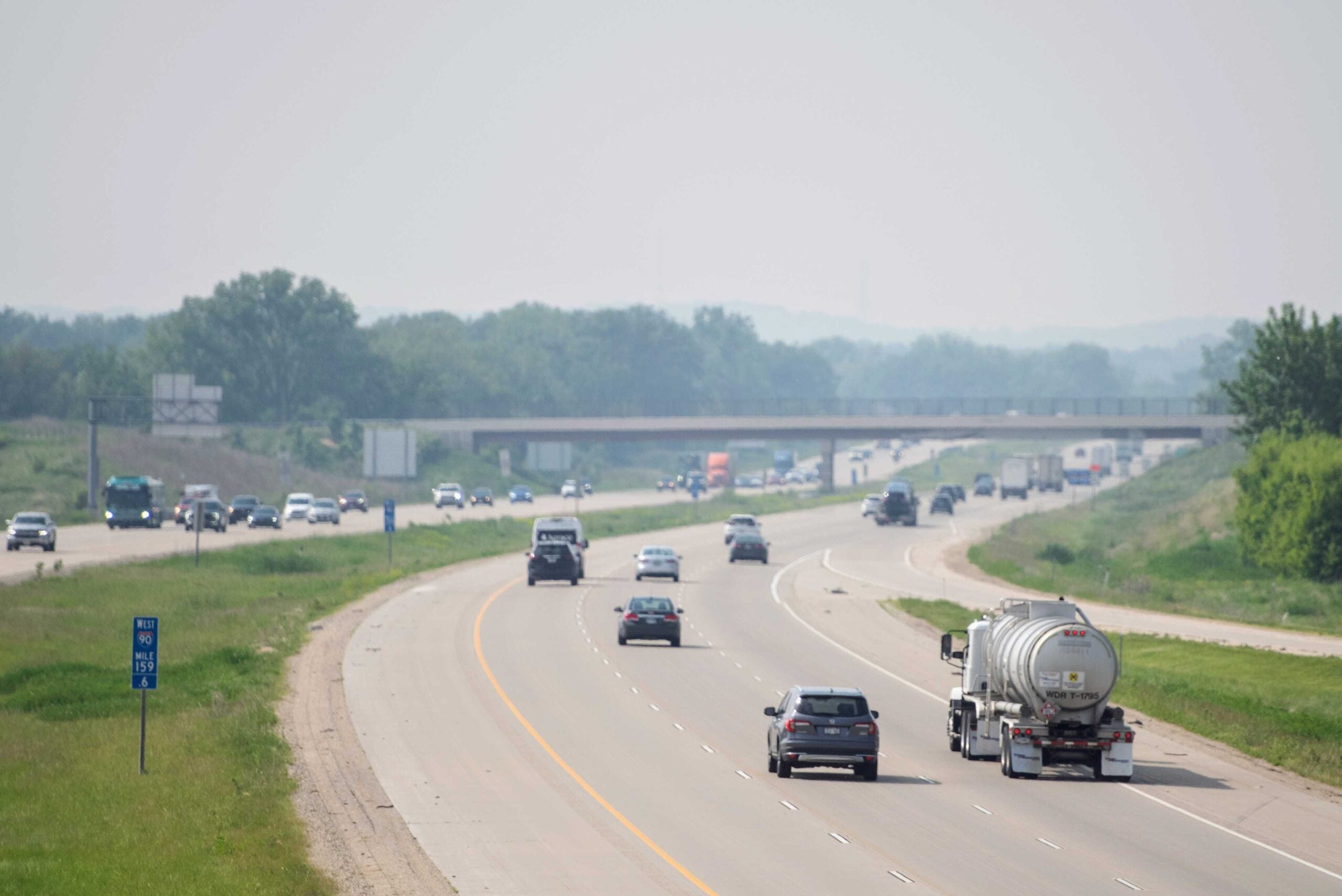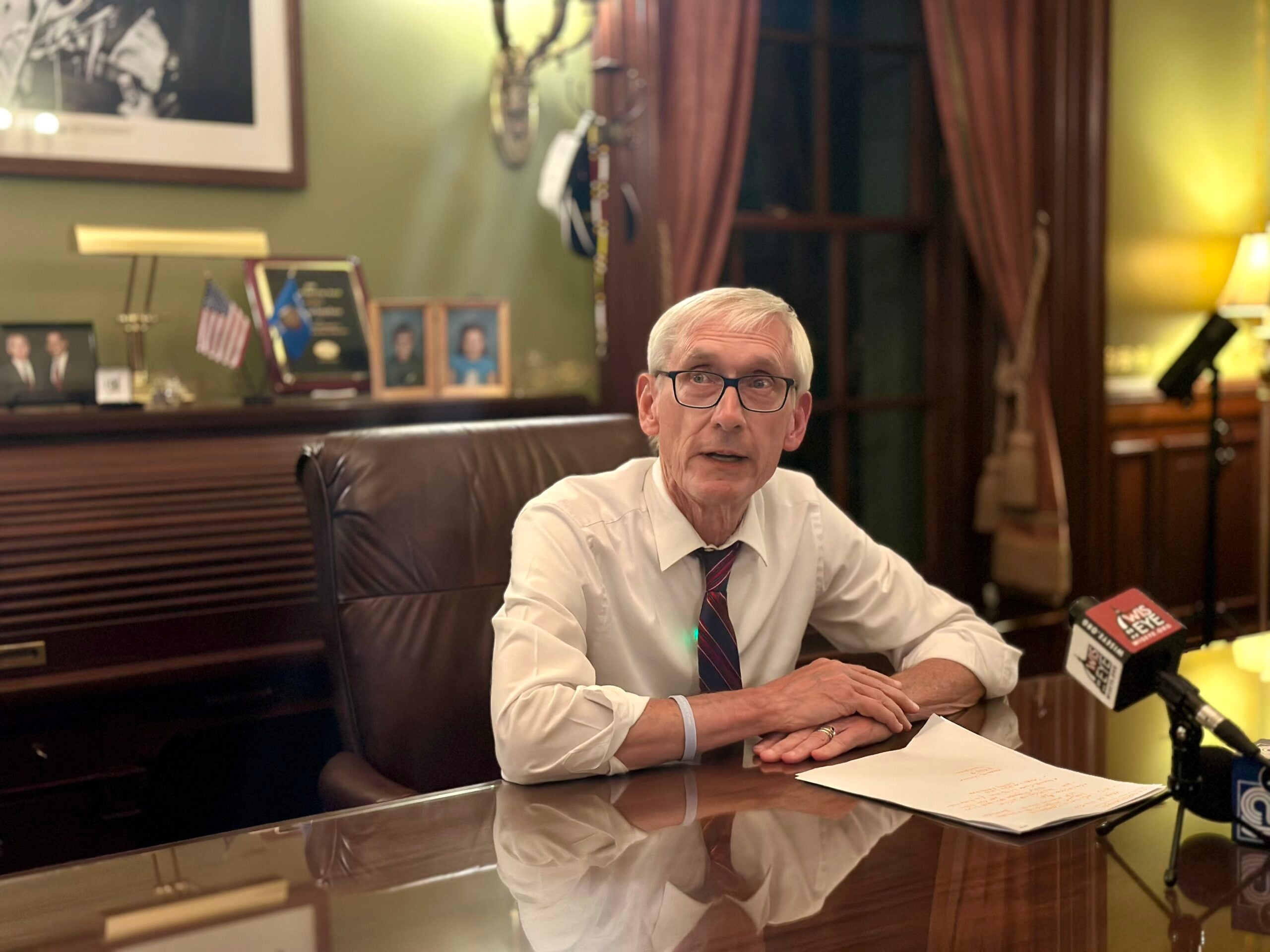Republican lawmakers have proposed an amendment to the state Constitution that would require a two-thirds supermajority in both chambers of the Legislature to pass statewide tax increases.
Lawmakers also heard public testimony about a separate bill, introduced in the Wisconsin state Assembly Tuesday, that would cut about $3 billion in state income taxes.
Taken together, the proposals would essentially revive parts of the Republican-proposed tax cut that Gov. Tony Evers vetoed when he passed the state’s biennial budget earlier this summer, and make it all but impossible for Democrats to reverse them as long as Republicans hold large majorities in the state Legislature.
News with a little more humanity
WPR’s “Wisconsin Today” newsletter keeps you connected to the state you love without feeling overwhelmed. No paywall. No agenda. No corporate filter.
Republicans say they want to make Wisconsin’s tax landscape more competitive with neighboring states.
The bill’s author said she wants all tax increases to have to clear a high bar.
“If we’re going to tax our citizens, let’s work together to make sure it’s the right choice and not just an easy choice,” said Rep. Amy Binsfeld, R-Sheboygan, at a public hearing of the Assembly’s Ways and Means committee on Wednesday.
An Evers spokesperson did not respond to a request for comment.
A supermajority for passing tax increases
The proposed constitutional amendment would make it more difficult to increase state income and corporate taxes. Such tax hikes would require two-thirds majority votes, which amounts to 22 votes in a full session of the state Senate and 66 votes in a full session of the state Assembly.
Republicans currently hold a supermajority in the Senate and are close to one in the Assembly.
To change the state Constitution, the proposal would have to pass two consecutive legislative sessions, and then be approved by voters. It would not be subject to a governor’s veto.
“This (proposed constitutional amendment) covers the principle elements of the state’s two biggest taxes. But at the same time, there are many other elements of the state tax system that it wouldn’t apply to,” Jason Stein, research director for the nonpartisan Wisconsin Policy Forum, told WPR.
For example, the state could still raise revenue by subjecting more items to sales tax or raising the gas tax. Municipal and county tax rates would not be subject to the amendment.
State income taxes last increased in 2009, after a new tax bracket was created for Wisconsin’s highest earners, according to research from the Legislative Fiscal Bureau. People in that top bracket saw their individual or joint income taxes increase from 6.75 to 7.75 percent.
The state sales tax rate has held steady since 1982.
Reviving a vetoed tax cut
The tax cut proposal would use the state’s surplus to cut income taxes for individual earners making between $27,630 and $304,170 per year or joint filers making between $36,840 to $405,550.
The cut for that group would be from 5.3 to 4.4 percent and would go into effect retroactively for the tax year 2023. It would also expand tax cuts for retirees over the age of 67, and exempt taxes on retirement income up to $100,000 for individuals or up to $150,000 for joint married filers.
Republicans included a version of the tax cut in their budget proposal earlier this year, which Evers vetoed, saying it focused tax breaks on the richest Wisconsinites.
Because of Wisconsin’s progressive income tax structure, higher earners will receive more tax relief under the Republican proposal. Republicans on Wednesday said the proposed changes would help Wisconsin keep pace with other states, arguing the current tax structure encourages Wisconsinites to decamp for other regions and prevents new arrivals from moving in.
“We’re just trying to get our income tax rate to be more competitive with the states around us,” said Rep. Terry Katsma, R-Oostburg.
On Monday, an Evers spokesperson directed reporters to a memo released by the governor’s budget director suggesting that Wisconsin could lose federal pandemic relief money if its tax revenue drops suddenly.
On Wednesday, Rep. David Steffen, R-Green Bay, argued that would not happen because Wisconsin has otherwise met its requirements for receiving pandemic funds.
“Never in the history of the country, has a federal government done such a thing where they would penalize a state for this type of action,” he said.
It’s not yet clear if the tax cut proposal will go before the Legislature. It would need to pass both chambers of the Legislature and then go to Evers’ desk.
Wisconsin Public Radio, © Copyright 2025, Board of Regents of the University of Wisconsin System and Wisconsin Educational Communications Board.







